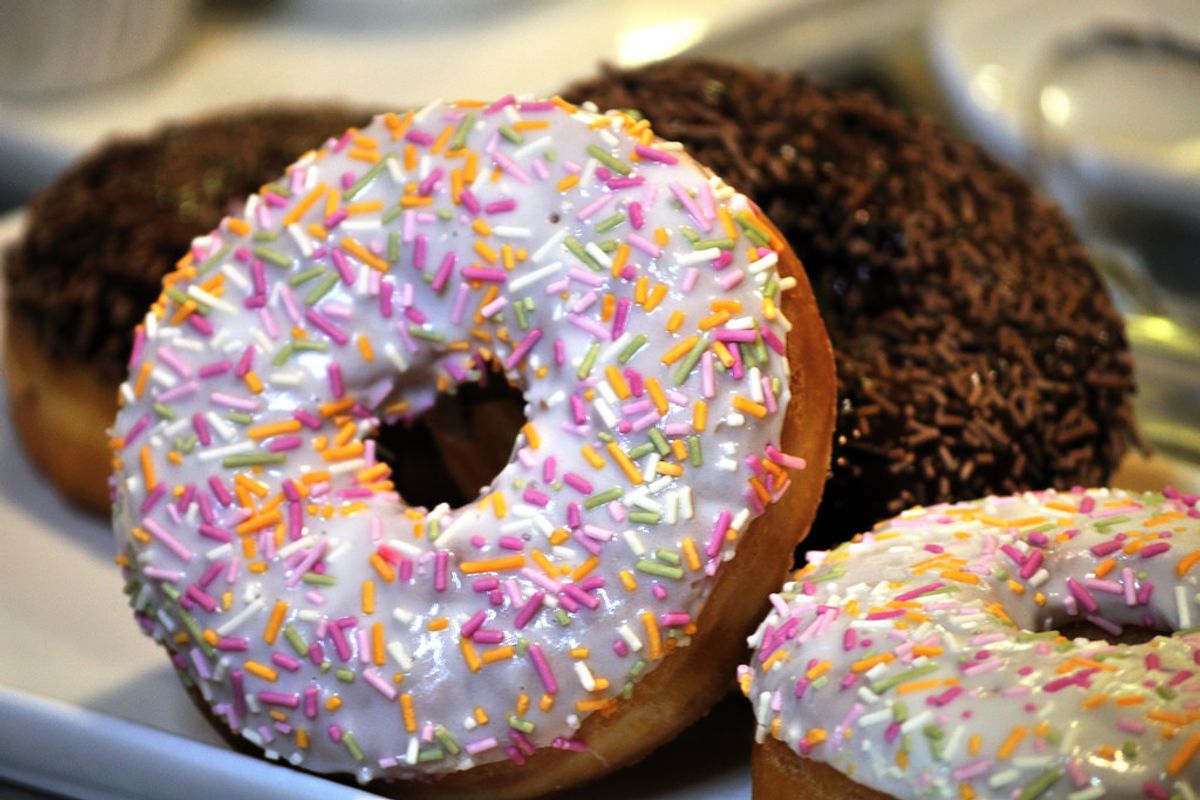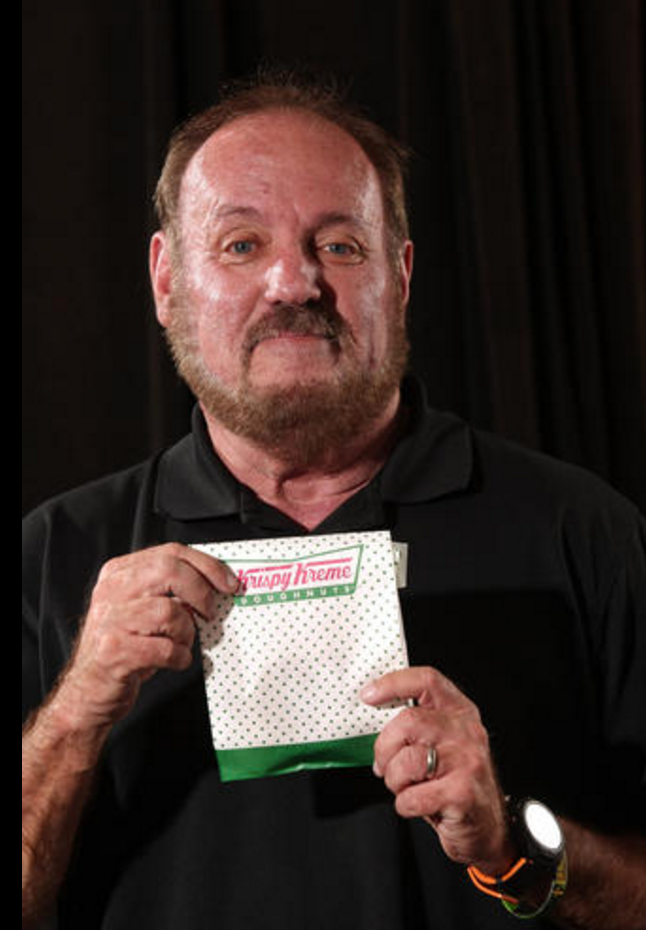In December 2015, Daniel Frederick Rushing was arrested when he was leaving a 7-Eleven in Orlando, Florida. That particular convenience store is apparently a locus of illegal activity, and since Rushing had been in and out of it a few times that day, police were suspicious.
They pulled him over, found a few flakes of a "rock like substance" that looked suspicious on his floorboard, and — according to the police report — arrested him for possession of methamphetamine after a field test:
A silver 4-door Chevy pulled into the 7-11 and parked. A white male, later identified as Daniel Frederick Rushing entered the 7-11 for a very brief moment and then exited the store without making a purchase. Rushing drove away and then returned a few minutes later with a black female employee of the 7-11. Rushing went back into the store and then left with the female a short time later. As Rushing was leaving the parking lot of the 7-11, he made no attempt to stop before entering the roadway to travel East on Colonial Drive (in violation of Florida state statute). Rushing then traveling north onto Parramore Avenue where the speed limit was 30 miles per hour. I paced Rushing at 42 miles per hour (with my certified calibrated speedometer) in the 30 mile per hour zone. For those two infractions I conducted a traffic stop on the vehicle at Parramore and Robinson.
When I made contact with Rushing I asked him for his driver license. When Rushing opened his wallet I observed a concealed weapons permit. I asked Rushing if he was armed and he stated that he was. For my safety, I asked Rushing to step out of the vehicle. When Rushing exited the vehicle, I observed in plain view a rock like substance on the floor board where his feet were. I recognized, through my eleven years of training and experience as a law enforcement officer, the substance to be some sort of narcotic. I removed the firearm (a loaded revolver) from Rushing and placed it in my vehicle for my safety. Additionally, I asked Rushing if he had anything illegal in his vehicle and he stated no. I asked Rushing if I could search his vehicle and he stated yes. Officer Vance (17448) and Officer Rolle (18874) arrived to assist me with the traffic stop. I retrieved the substance that I initially saw on the floor board and two other small pieces from the floor board of the driver side. Officer Vance found an additional piece of the same substance in between the driver seat and the door area. I field tested the substance and I received a positive indication for the presence of amphetamines. I conducted a separate test on the substance and received another positive indication for amphetamines.
I provided Rushing his rights per Miranda. Rushing stated that he has never done any drugs in his life and he has no idea how the substance got in his vehicle. Rushing stated that the substance is sugar from a Krispy Kreme donut that he ate.
Rushing was placed under arrest and charged with possession of amphetamine with a weapon.
The "rock-like substance," as it turned out, really was glaze from the Krispy Kreme donut that Rushing had been eating as he was driving one friend to the hospital for a chemotherapy appointment, before picking up another friend who needed a ride home.
Rushing was jailed for ten hours. "It was incredible," he told reporters:
It feels scary when you haven't done anything wrong and get arrested. … It's just a terrible feeling.
Several weeks after Rushing's arrest, the lab reports came back showing no trace of methamphetamines or any other types of illegal substances. He has now hired a lawyer, and plans to sue the city because he was arrested for no reason at all. (Orlando police said that the arrest was lawful.)
It's not the first time field tests have mistaken sugary substances for methamphetamines or crack cocaine. In July 2016, investigative journalist outfit ProPublica found that up to half of the positive results from the $2 drug kits Florida police use for field testing are later invalidated:
In one notable Florida episode, Hillsborough County sheriff’s deputies produced 15 false positives for methamphetamine in the first seven months of 2014. When we examined the department’s records, they showed that officers, faced with somewhat ambiguous directions on the pouches, had simply misunderstood which colors indicated a positive result.
According to a 2015 story published by The Marshall Project, a reporting initiative about the United States criminal justice system, the tests yield false positives at least five percent of the time:
Sage has been mistaken for marijuana; motor oil for heroin; jolly ranchers for meth; and breath mints for crack. In February, a Minnesota man spent months in jail after his vitamin powder tested positive for amphetamines.
Soon after the arrest in Tampa, a Hillsborough police lieutenant conducted his own experiment on the NARK II tests, which cost between $15 and $20 for a box of ten. He found that just opening the test bag to the air produced the same shade of purple as exposure to methamphetamine, according to an internal memo. In February, the Hillsborough sheriff’s department announced it had switched to a different field test, made by the same company, which tests for a wider variety of illegal drugs. A spokeswoman for the sheriff’s department declined interview requests.
In Austin, Texas, the field tests law enforcement was using yielded so many false positives that they stopped relying on field tests for drug-related indictments in 2013, instead returning to far slower lab test results for suspected drug offenses.
No central agency regulates what drug tests are used in police departments, and there are no centralized or comprehensive records about their use.
In October 2016, Rushing sued the city of Orlando and The Safariland Group, which manufactures and distributes the drug testing kits used by Orlando police. He is seeking more than $15,000 in damages.


